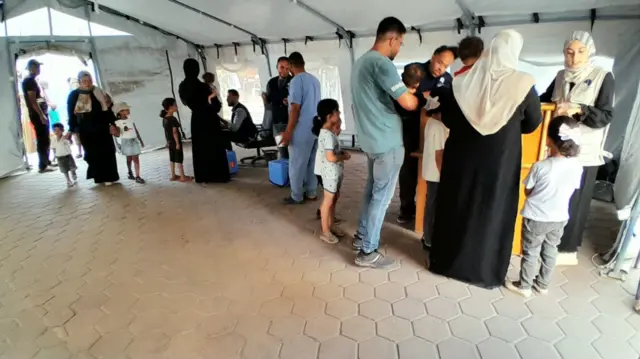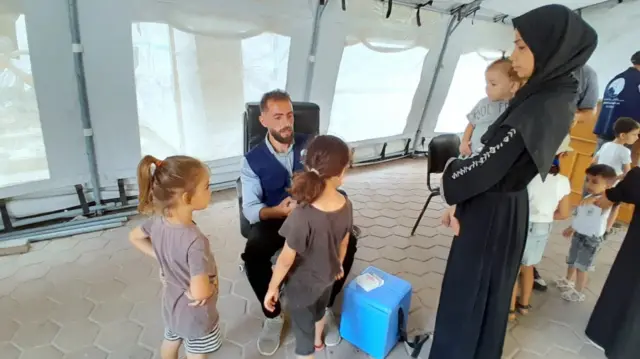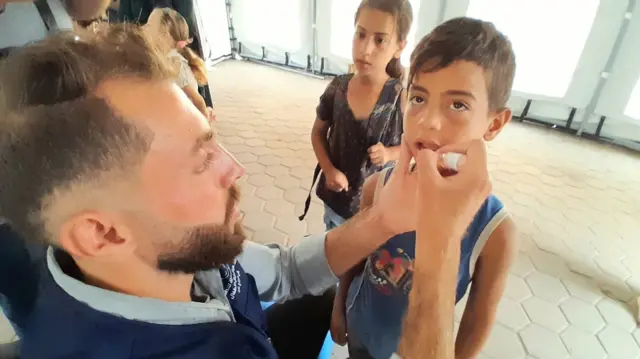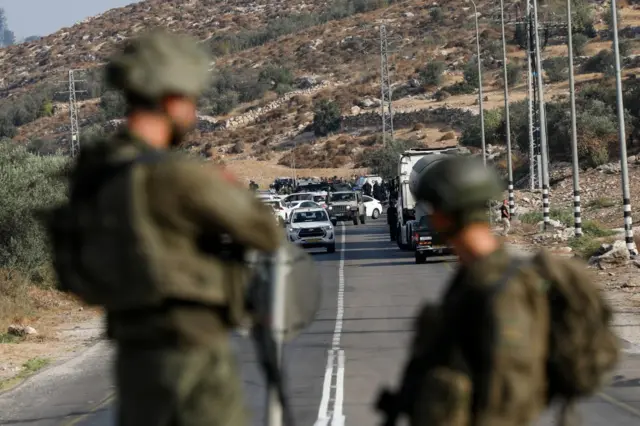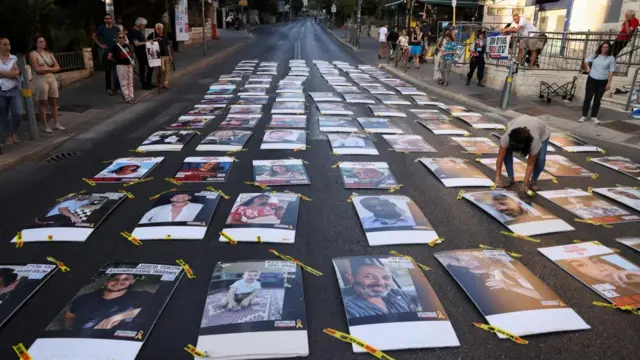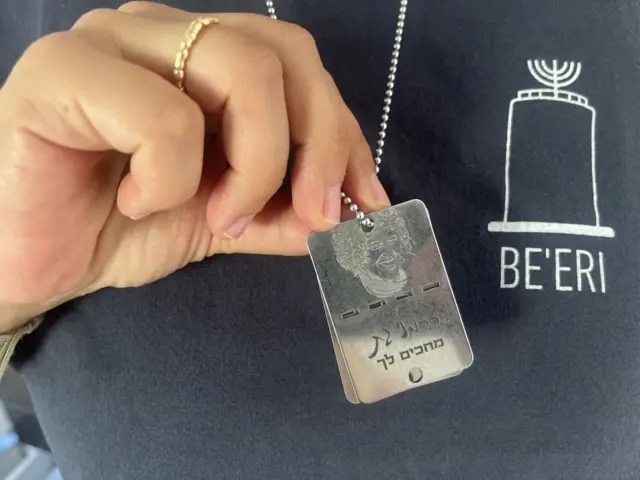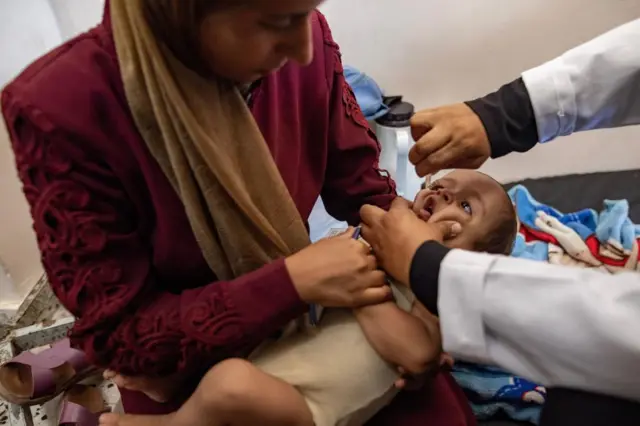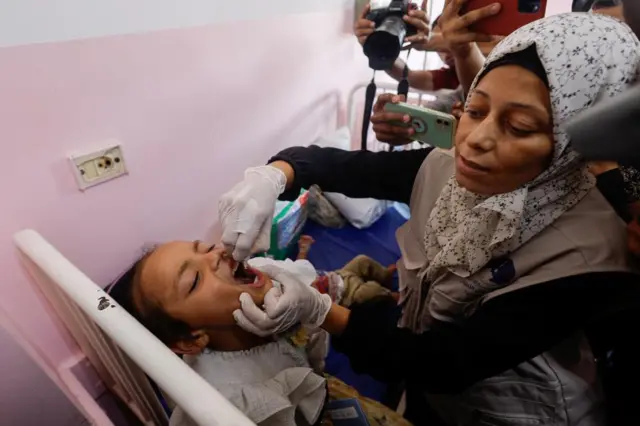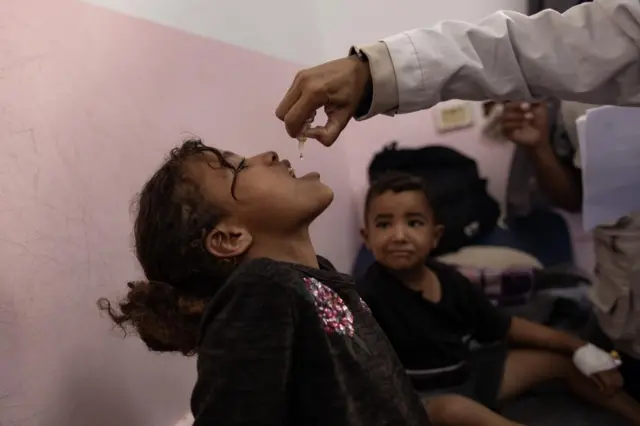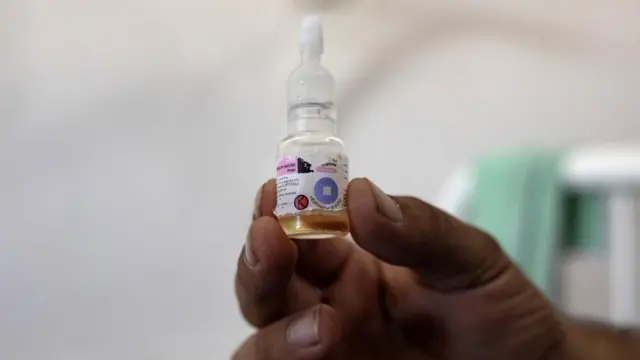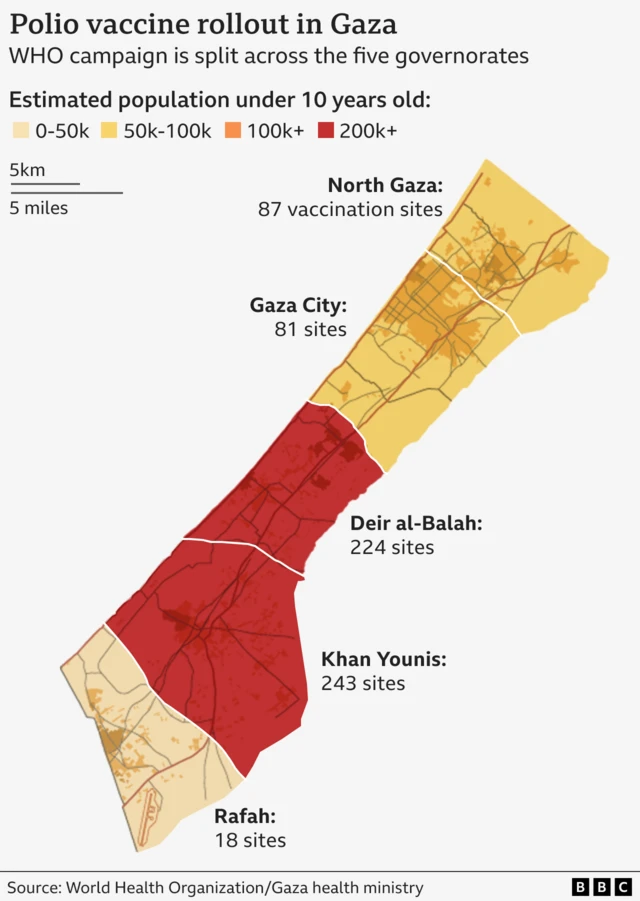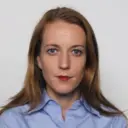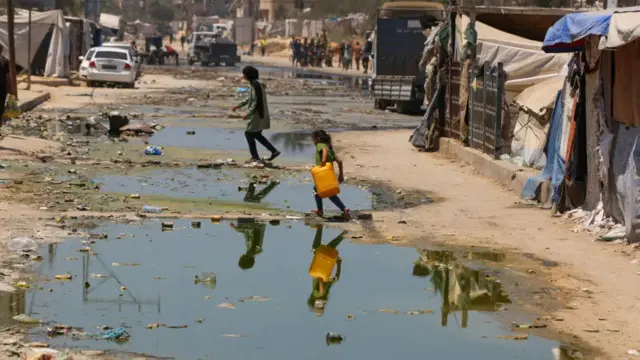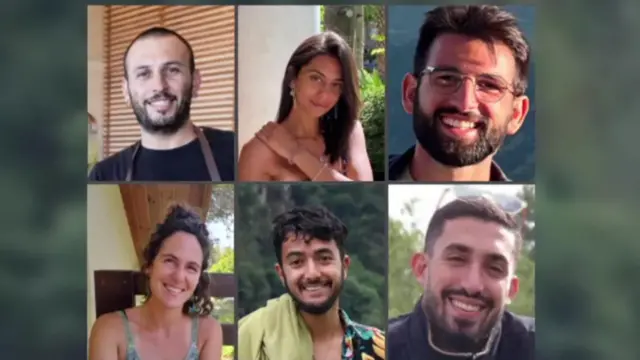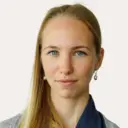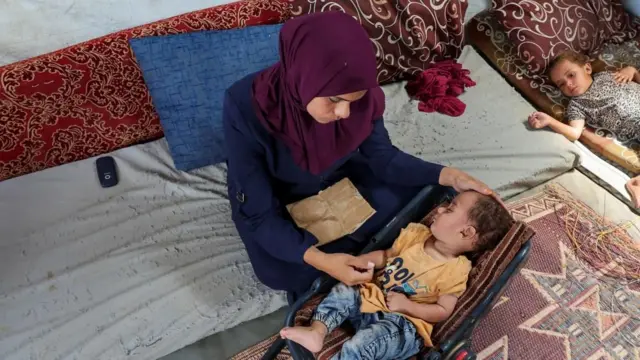Humanitarian pause holds as campaign off to positive start - health officialpublished at 09:23 BST 1 September 2024
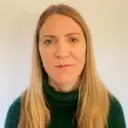 Alice Cuddy
Alice Cuddy
Reporting from Israel
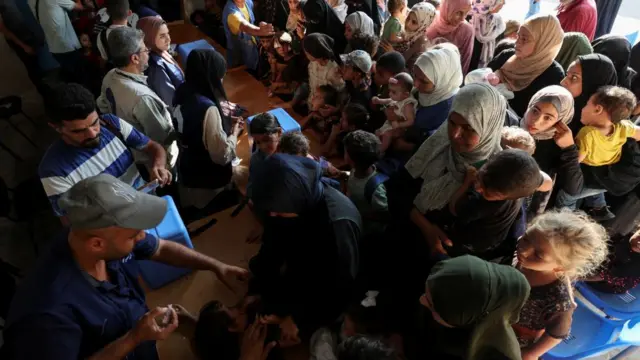 Image source, Reuters
Image source, ReutersPalestinian children are vaccinated against polio in Deir Al-Balah
A senior health official in Gaza says the polio vaccination rollout has got off to a “very positive” start.
Dr Moussa Abed, director of primary health care at Gaza’s Hamas-run health ministry, says that “a lot of people are queuing at several vaccination points and there are crowds forming”.
“Nobody is leaving until their child gets the vaccination - this is a very positive thing,” he tells us.
Dr Abed says he hopes the vaccination drive “will reach as many as possible today”.
He adds that Israel has been honouring the "humanitarian pause" to allow vaccines to be administered in central Gaza.
“We hope it will continue like this,” he says.
The polio vaccine is being rolled out in three separate stages, across the central, southern and northern parts of the strip.
During each stage, fighting will pause for three consecutive days between 06:00 and 15:00 local time.
